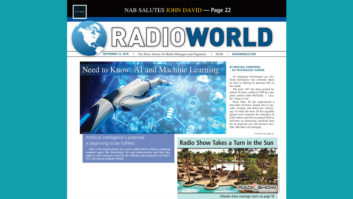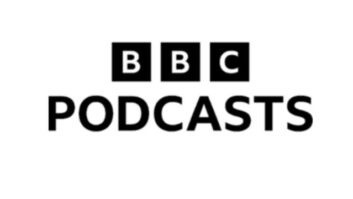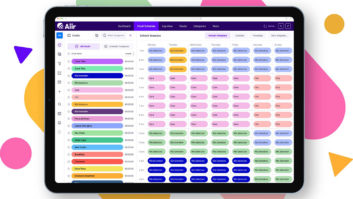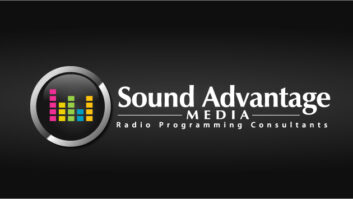Coke versus Pepsi, McDonalds versus Burger King, Federal Express versus United Parcel Service…
Marketing authors Ries & Trout say that, “In the long run, every market becomes a two-horse race.” When it comes to music scheduling software for radio, the two most familiar brands are (in no particular order) RCS GSelector versus MusicMaster.
There are other options. You might think of brands like PowerGold or BSI’s Natural Music as “RC Colas” of the category. Depending on your needs and budget, they should be contenders, too. Nor is this a comprehensive list of available systems.
But the two names above come up repeatedly when programmers get together.

After a few beers at the next radio industry convention, someone from either RCS GSelector or MusicMaster may demonstrate for you that they know who supports their software … and who doesn’t. “That’s a Selector guy,” they’ll say. Or “She likes MusicMaster.” And it can be really difficult to win over program directors and music directors from the other camp.
Then again, depending on where programmers work, they may not have a choice. “We’ve been using GSelector at iHeartMedia since it rolled out,” says iHeartMedia EVP/Programming Operations Jon Zellner. “My favorite feature is ‘spread,’ which saves so many steps to achieve the same result in previous versions.”

Meanwhile, at Entercom, National Top 40 Format Captain Brian Kelly (who’s also VP of operations at their Milwaukee stations) says, “We need complete flexibility, and only MusicMaster offers that in a way that’s easy to learn. We love it.”
In fact, “We also have fans at Cox, Univision, Viacom, Sirius Satellite, Midwest Communications, Saga, Radio One, Hubbard, Emmis, Summit Media, and many more,” says MusicMaster President Joe Knapp. “Frankly, it would be easier to list the programmers and companies that don’t use MusicMaster.”

Instead, we’ll let Drew Bennett, RCS national sales manager for scheduling products, do that. “RCS is the world’s largest software company for broadcasters. From our parent company, iHeartMedia, to people like Bonneville, EMF, Hubbard and more.”
Both companies offer 24/7/365 tech support, integrate with all the major studio automation systems, and clearly have some genuine fans. But is there really a difference in their software?

“We know what we like, and we like what we know,” says veteran Hispanic market programming consultant David Gleason. “It takes a while to understand how to get the best out of the two major programs, and most of us hate the idea of changing. I think that this is mostly a matter of personal preferences.”
There are some slight differences in philosophy between the two companies, though, especially about whether to put a bigger emphasis on “goals” or “rules.”
Gleason explains, “Rules are sets of restrictions, such as ‘no two slow songs in a row.’ Using goals, rather than set limits, you might instead tell the system, for example, ‘One of the goals is to pick songs with the highest test scores as possible.’”
“Goals are the ‘G’ in GSelector,” says Bennett. “Our software allows you to really mix and weigh goals and traditional rules to achieve a great log with minimal effort. You’ll spend less time editing and more time doing the 900 other items on your list.”
Knapp maintains that both rules and goals serve a purpose, but “We’re programmers ourselves, so we designed MusicMaster to think like programmers do. That’s why the time-honored rules are respected first. Then Optimum Goal Scheduling is an important tie-breaker to make the best possible choice from the pool of songs that make it through your rules. We also made MusicMaster to be easily customized. It fits you, rather than forcing you to fit into a pre-existing set of fields and rules.”
Gleason has witnessed a lot of innovations in music scheduling for radio since 1981, when he began using a program called Generation II. He now recommends that stations have “real-time control so you can make an instant change from your desk or mobile device. How many programmers added some Aretha Franklin as soon as that sad news broke? And how many didn’t react soon enough because they didn’t have a way to quickly change the music log?”

With nearly 40 years of music scheduling software evolution, maybe these systems have long since incorporated every useful function and feature possible. Or maybe not. Gleason sees artificial intelligence as a potential opportunity.
“If the program can learn and make fuzzy rules based on our editing history, then it can understand how to offer the best suggestions for situations where there might be an unscheduled song or even remember which songs we don’t want to play back to back. If my iPhone can gradually learn my speech patterns and word usage, why can’t scheduling software learn my programming style?”
So, music scheduling gurus: Get to work!
As a 21st century programmer, Dave Beasing continues to keep one foot in radio and one in podcasting. His new “Sound That Brands” studio joined Steve Goldstein’s Amplifi Media in producing “Inside Trader Joe’s.” Learn more about branded podcasts at SoundThatBrands.com.












